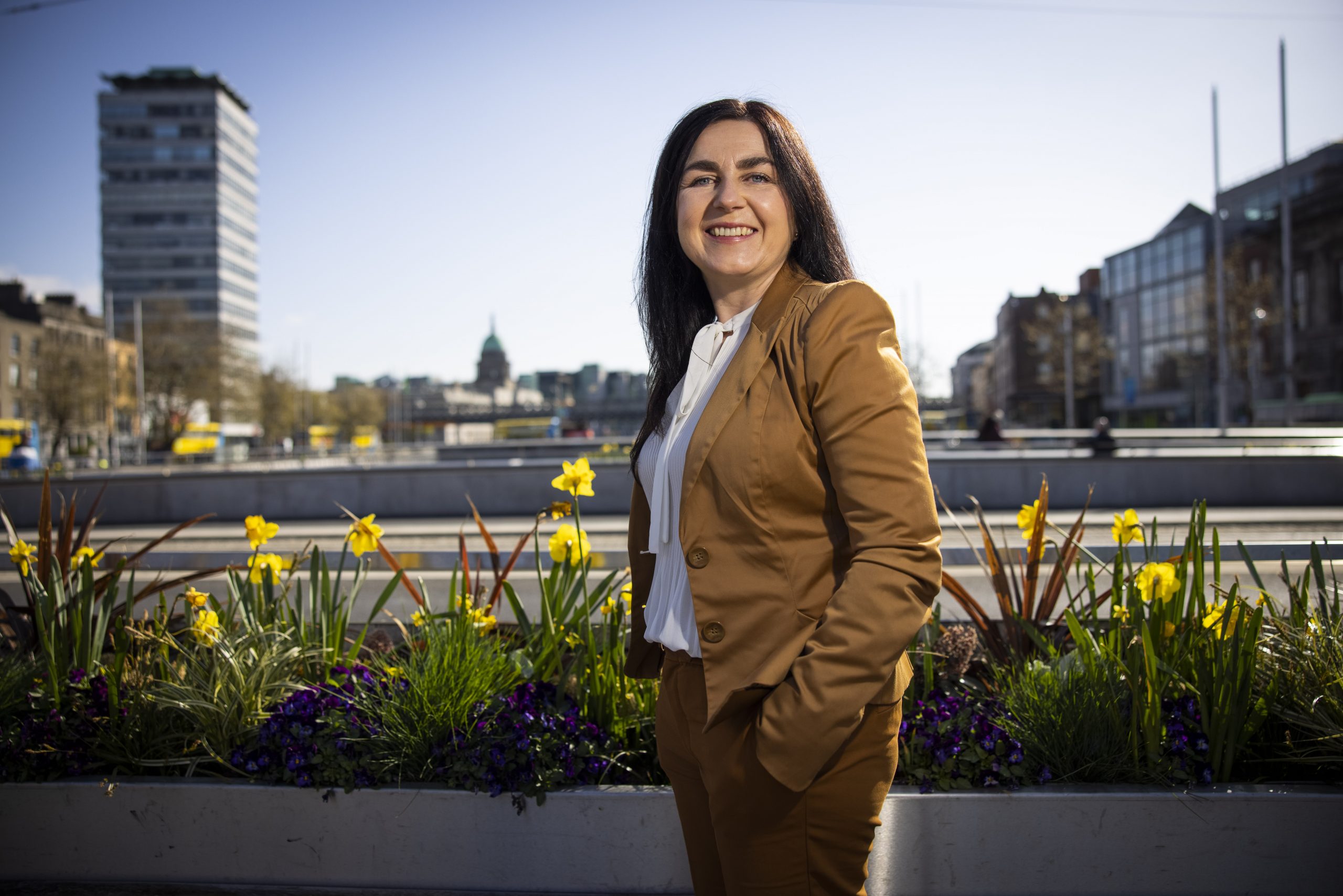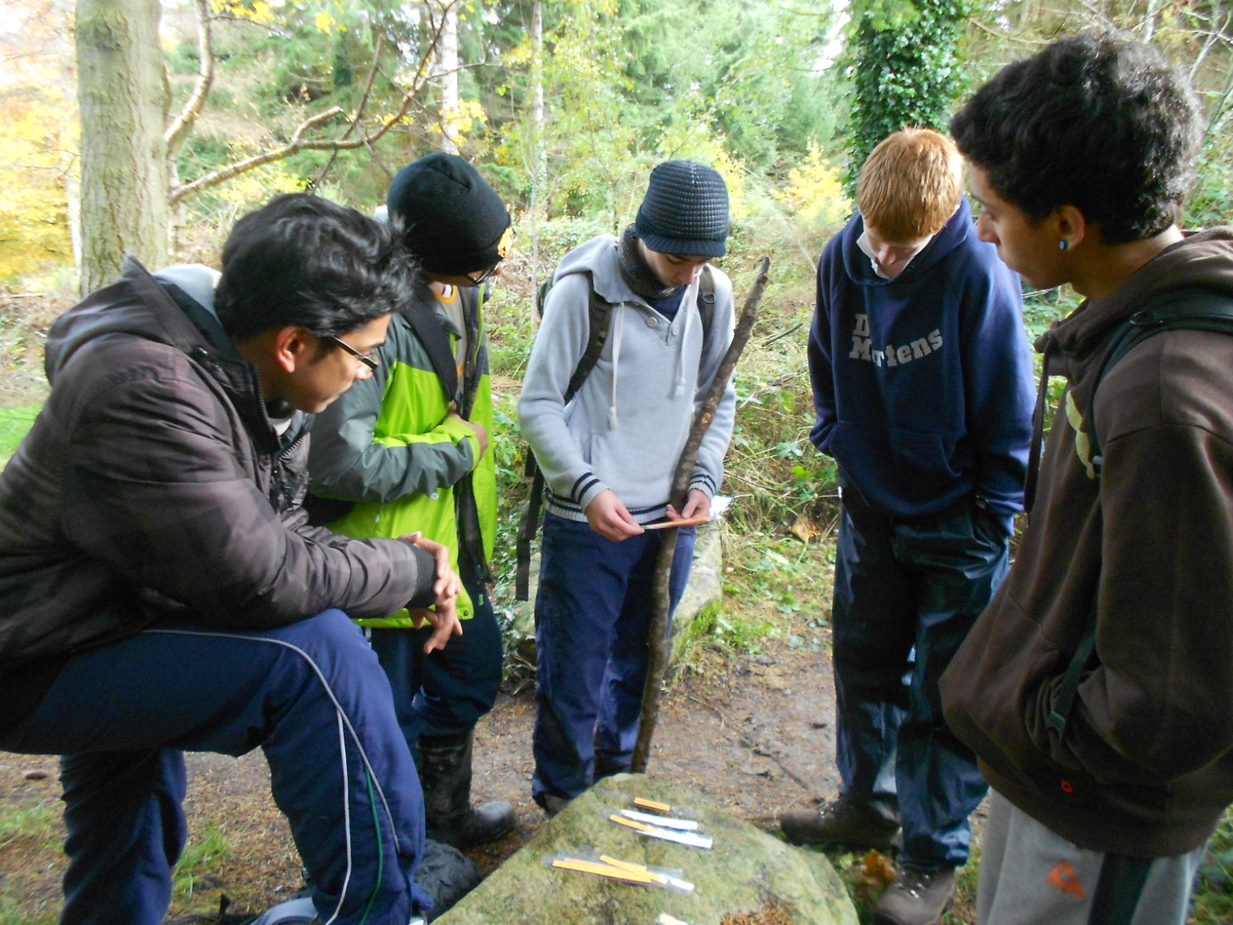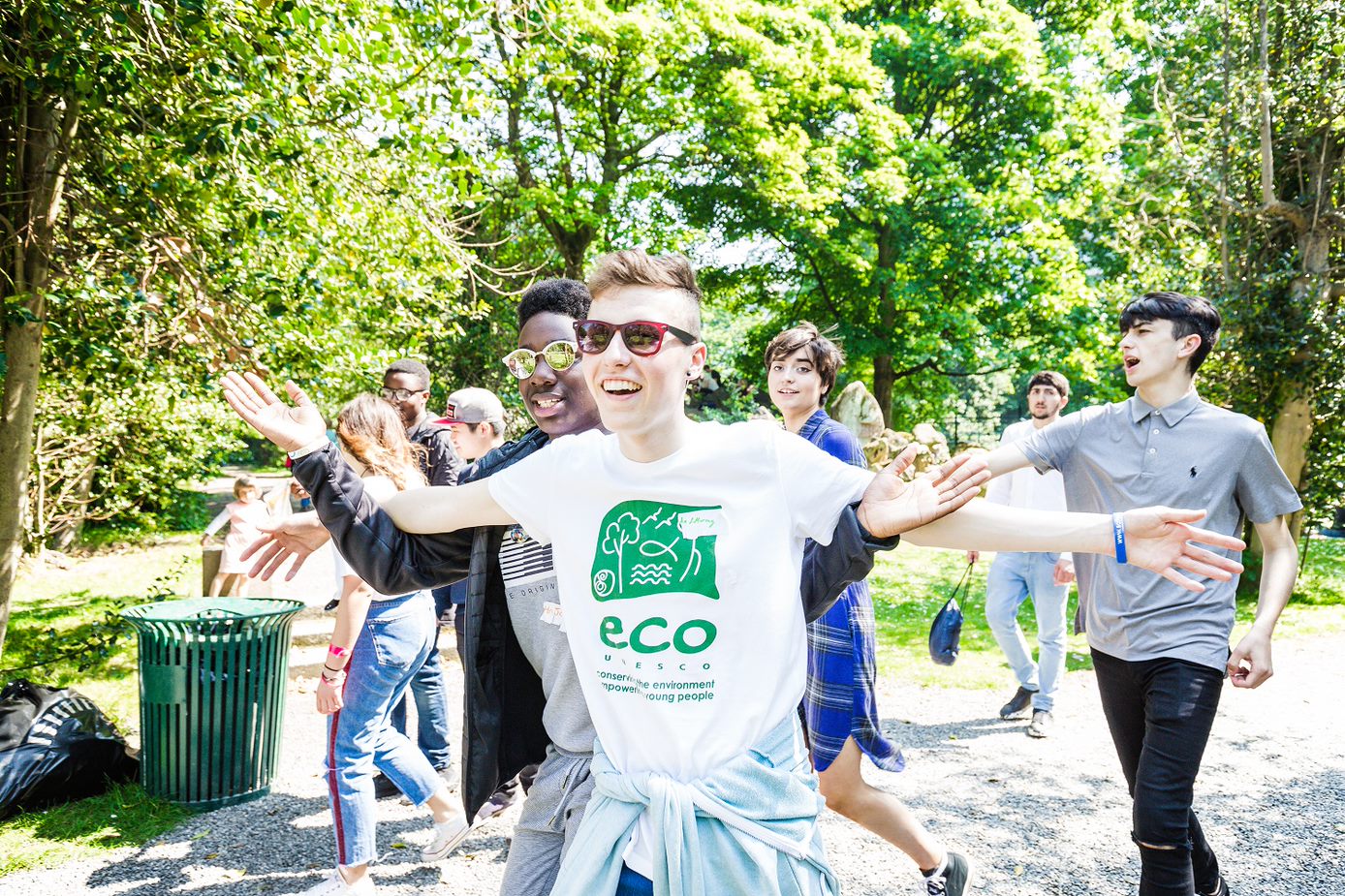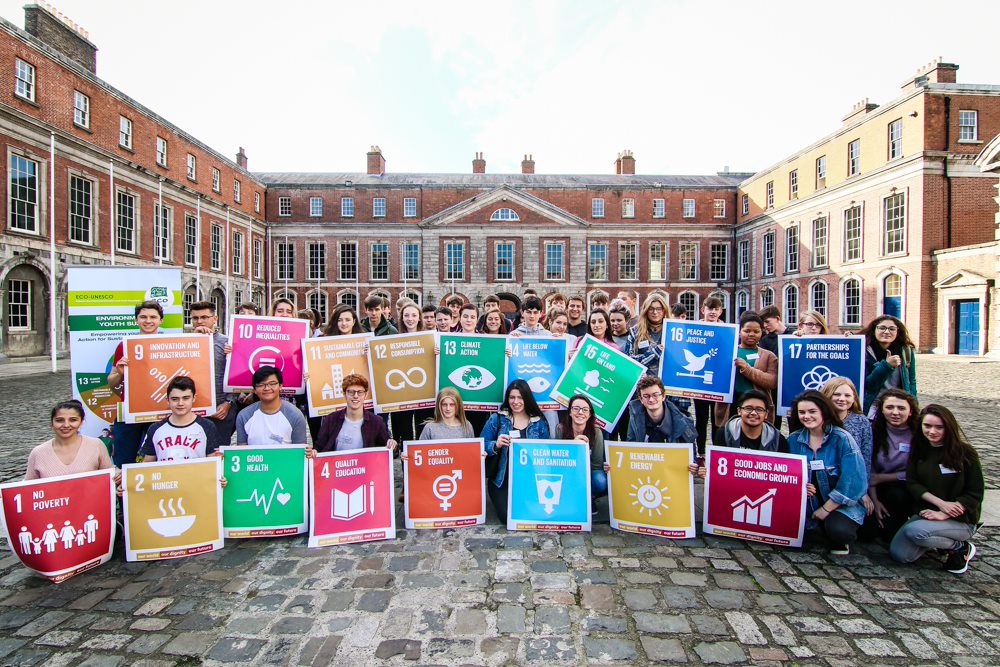
“I was always fascinated by the earth and life sciences and growing up, I had a very strong interest in our natural world and how everything is interconnected. Coming from a farming background, I was used to being in nature and through that, I developed a greater awareness of and appreciation for it.
“Seeing environmental degradation and learning about climate change during the 80s and 90s during my studies, it became clear to me that we were on a path towards greater environmental damage if we didn’t change the way we were doing things. At that time, the general population wasn’t as aware of the importance of our natural environment as today, and I felt that the key was in raising greater awareness of our natural environment.
“I taught for a number of years, which was a fantastic experience and I developed a keen interest in how we engage and empower people around environmental issues. I saw the key role that education plays in building knowledge, awareness, skills and values in young people around environmental issues and how education at all levels and in all forms is key to helping us achieve sustainability.

ECO-UNESCO
“ECO-UNESCO works mainly with teenagers, educating and empowering them through various programmes. We have had many impactful programmes over the years. Our Young Environmentalist Awards is one of our flagship programmes and has impacted tens of thousands of young people since its inception in 1999, encouraging young people to take action locally on a wide range of environmental issues including waste, climate change, biodiversity and water, among others. Young people have come up with innovative solutions to these environmental issues and in doing action projects, not only impact on their environment but also on their personal development and skills.
“Another programme that stands out is our Green Pathways programme that we ran to build employability skills in long-term unemployed young people. This highlighted the potential of the green economy for young people and through an accredited training course, we built skills and confidence so that young people could apply green skills to their jobs. Another one of our stand-out programmes is the Youth for Sustainable Development programme, which has built leadership and peer education skills in thousands of young people around sustainability and the sustainable development goals. Our other initiatives such as ECO-Choices works with young people through a health and well-being programme.
Building out from the Individual
“We encourage young people to find sustainable solutions to environmental challenges by encouraging them to do action projects through our Young Environmentalist Awards programme and to follow a 6-steps to success action project framework.
“Examples of actions young people take include projects to improve and enhance biodiversity by growing pollinator plants and bee gardens, building bug hotels; building community gardens; making schools plastic free; raising awareness of fast fashion and encouraging swop shops; exploring alternative agriculture such as growing hemp, building nature hikes which improve health and highlight benefits of nature, building sensory gardens, creating carbon calculator apps among many others.
“These type of projects and initiatives bring many benefits to young people directly by building their knowledge, their skills and builds confidence and self-esteem. They also benefit communities – often as a result of participating in these type of local action projects, young people feel a bigger part of their community, develop better relationships with community members and feel a greater sense of ownership. The projects also benefit the natural environment as they improve nature and the promote pro-environment behaviours.
“Getting involved with ECO-UNESCO builds environmental knowledge, awareness and skills in young people; it also builds confidence and self-esteem and provides a place where young people can feel they will meet like-minded people and that they can feel empowered to take action. It is a combination of all of those things that we want when a young person comes to the organisation.

Inclusivity
“As an organisation, we have always been very inclusive and have had a focus on working with all young people including those who were most at risk. For those young people, we have worked through our specific youth employment and employability programmes, our ECO-Choices health and well-being programme, or any one of our programmes including our Young Environmentalist Awards where we encourage all young people to take part.
“For young people who take part in our programmes, they develop new skills, there is a large focus on building self-esteem or self-confidence, we use the natural environment as a tool for working with young people and include outdoor excursions, experiential environmental education.
“We also have an approach of ‘Thinking globally, acting locally and learning by doing’ so young people get an opportunity to link their lives to a larger global picture and they are also empowered and up-skilled to take-action locally.
“For some of the young people who have come through our youth employment programmes, they got really valuable experience in jobs they were interested in; others went onto further education and training; the programme helped them to break the cycle that they often found themselves in. We’ve had many young people who’ve said that the programme changed their lives; they started new courses leading to new careers; they developed new green skills – they could do environmental auditing; it improved their confidence and encouraged them onto a path which they found fulfilling.
International collaboration
“We are linked to UNESCO through the World Federation of UNESCO, Clubs, Centres and Associations and through UNESCO’s Education for Sustainable Development for 2030 (ESD for 2030) initiative. Prior to that, we were one of UNESCOs Key Partners for the Global Action Programme in Education for Sustainable Development (GAP in ESD); UNESCO provided the international framework for education for sustainable development, education resources, leadership training and collaborative opportunities. Our links to UNESCO have been, and are, very important to us. There is a depth of experience and a broad range of expertise which a large international organisation like UNESCO can bring. We also link with countries in Europe through Erasmus+, carrying out joint projects and initiatives. I think the international collaboration is very important, as through it, we share experience and good practice, as well as innovations and solutions.
Sustainable Future
“When I joined ECO-UNESCO, environmental issues weren’t as mainstream. There is a much greater awareness of environmental issues now and young people are at the forefront of this.
“We have always had young people who were interested in environmental and sustainability issues participate in ECO-UNESCO, whether that was through ECO-Clubs, our awards programmes or in our workshops or trainings. We have also always had very politically-aware and active young people. However, I think now more young people are demanding more environmentally-friendly spaces, schools and work places, more environmentally-friendly products and services and are placing greater demands on the political system.
“Young people are demanding change from their politicians and from large corporates, but they are also making change happen. They are innovating and finding solutions themselves and are sharing these with their friends and peers. There are so many more young people setting up their own sustainable enterprises. Social media, in this instance, is a really great tool which has allowed them to do this. This is very different to 2001.
“Also, I think young people are deciding which type of companies they want to work for. They are deciding if the values of the company align with theirs and if they don’t, they are not afraid to go somewhere else. This is quite a different attitude to 2001, and I can only see this getting stronger. The more that young people say that they will only choose eco, green or sustainable, the more pressure companies, products and services will be under to become more sustainable. That can only be positive in achieving the system change that is needed.”

Profiles
National Director of ECO-UNESCO and NUI Galway Alum